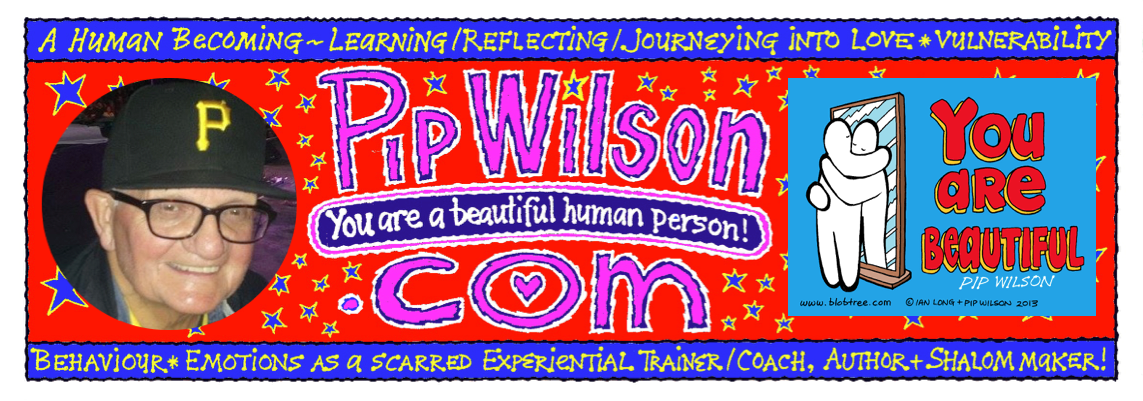
“This work, this is really great,” he says, handing over his notes.
“Oh, by the way, I took a look at your blog.
You say you have serious mental health issues.
Well… It doesn’t look that way to me. You can’t have anxiety issues…”
“That was such a great talk,” she says.
“You can’t possibly have mental health issues if you can do that. I don’t have anxiety and I couldn’t do that.”
“Why is it you don’t have to do a presentation? Depression? Wow, I wish I could have depression so I could get out of doing this.”
“I wish I got to lie around all day doing nothing. It sounds fantastic.”
“So… your GP says you have severe depression with psychosis,
and a severe anxiety disorder.
And you had anorexia for a long time.
But you have a PhD. So you can’t ever have been that ill.”
It’s exhausting. It is… all so… exhausting.
Mental illness is not a brand that you wear.
It doesn’t scar you
(unless you self-harm, of course, in which case you, like I, have carefully hidden the evidence).
It isn’t visible, it isn’t something you can easily spot.
Partly because when I’m really, really ill, I won’t be there for you to see.
I will be careful, too, that you won’t see it.
“Don’t hang around her, she’s psychotic.”
“I mean, we all get down sometimes, but she takes it way too far.”
“Oh my god, oh my god, look at her arms, I can’t touch them,
I can’t touch her, she’ll break!”
“You shouldn’t make such a big deal out of it. It’s not like it’s real.”
Or
“Have you tried meditation? I can’t do it, but you totally should.”
“You need to take [insert vitamin here] and [insert supplement here]. They’re great for depression.”
“Exercise is great for mental health. I run every day and I feel fantastic.”
“When I feel a bit down, I do yoga.”
A bit down?
I am afraid even to click publish on this for fear of the remarks.
The “you brought this on yourself”s and the “oh,
but I read in The Guardian and yes,
you should do an hour of meditation a day
and run and do yoga and you’ll be fine.”
For a while, I tried signing up to take part in research — the research that spawns these articles — because my surgery tends to promote them. I am not suitable. The research is largely based on studies of people
with ‘mild to moderate’ depression, which is under control with an SRI, or which has been stable for a long time.
I do not fit into this category.
You might as well tell Ripley that the best way
to deal with Xenomorphs is to eat more veggies and get a yoga mat.
People mean well, which is why they say the things they do.
People don’t know what to say, and they want to help.
I have developed a tendency to say “I have a migraine” instead of “I have severe depression and it’s too much right now.” An easy sidestep that, unfortunately, perpetuates the idea in my head that depression isn’t genuine sickness, that it’s too dark a thing to talk about.
Buzzfeed has produced a mountain of ‘don’t say this to the depressed/anxious/otherwise ill person’ articles.
I suspect they’re mostly read by the ill people of the world who can feel, for a moment, the tension in their shoulders shift. Somebody gets it.
But on the whole, it is tiring to talk about being ill when you are ill and all your energy goes on being ill and still trying to shore up some kind of a life. For a long time, I have dodged the idea of writing publicly, or just to friends on Facebook, about being ill. If even the responses of well-meaning, loving friends are too much to handle, how can I contemplate writing to a whole bunch of strangers?
My grand plan was that I would get better, then I would talk about mental illness. The flaw in that plan is that people with severe depression, severe anxiety and a host of other things don’t just get better. I meditated like a boss. LIKE. A. BOSS. I did All of the Yoga. I even went to buy some St John’s Wort, only to read on the label a warning that if you’ve been diagnosed with depression, like real depression, the illness depression,
then you shouldn’t take it. St John’s Wort is for people who
feel slightly less than excellent (and I apologize here to people who have taken it
whilst depressed and found it helped — we all have weird things that work for us that aren’t supposed to).
A friend and I have discussed the requirements of conversations with the chronically healthy.
That we should be polite about their suggestions, that we should consider THEIR feelings over our own; and that, most painful of all, we must show up as Good Sick People, and do our self-care like we’ve been told, regardless of whether it helps or not.
If you asked me to list the things that help, that I turn to when I am really sick, it would not look anything like a wellness article to you. When I first got my weighted blanket, I thought I was going to die with relief.
It took the edge off.
Just sheered a bit off the constant, grinding anxiety that never goes away.
A tiny bit. When you are very sick, you are grateful for every tiny little bit.
I wear a mask, most of the time,
if I have to go out. So do we all. But the masks that we wear when we’re sick are worse, harder to maintain. And I have grown tired of wearing mine.
*
NOT an article by me
BUT it is the sort of reflection I need to learn life .....
*
